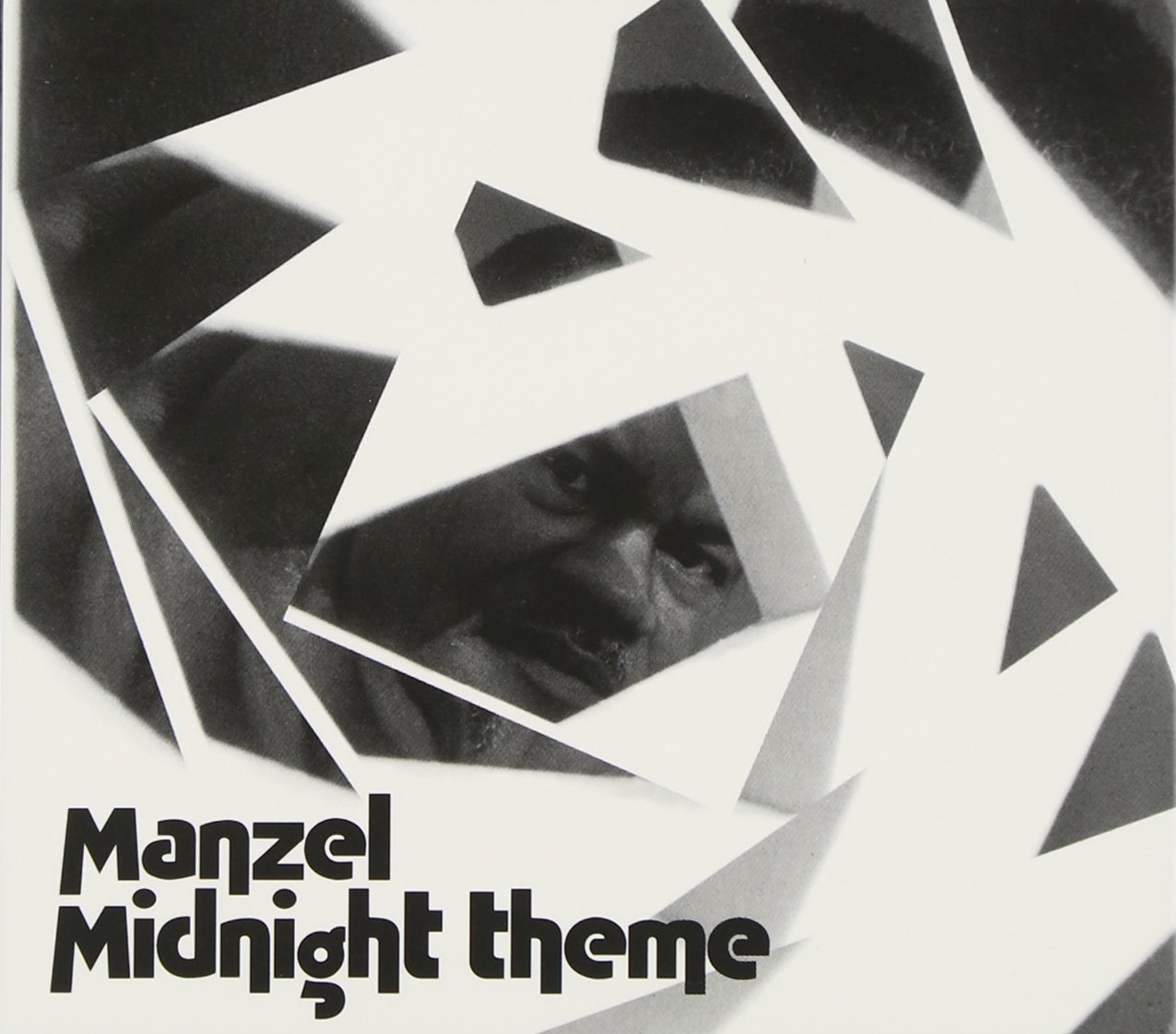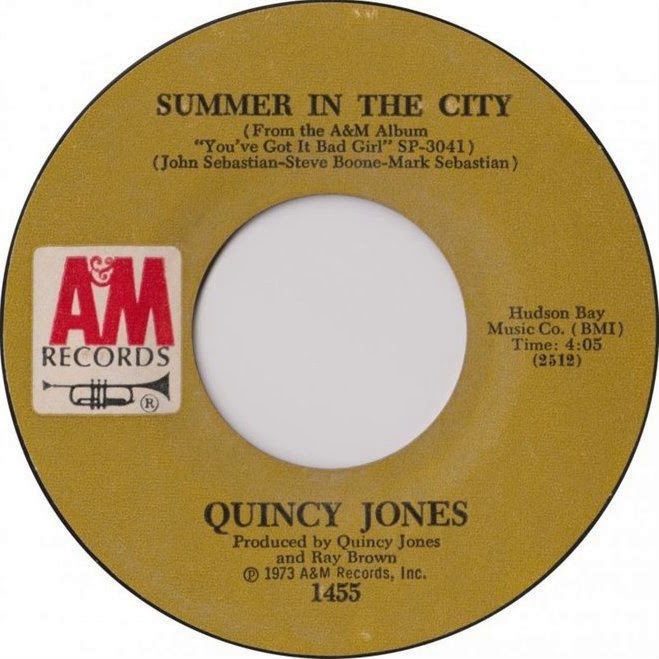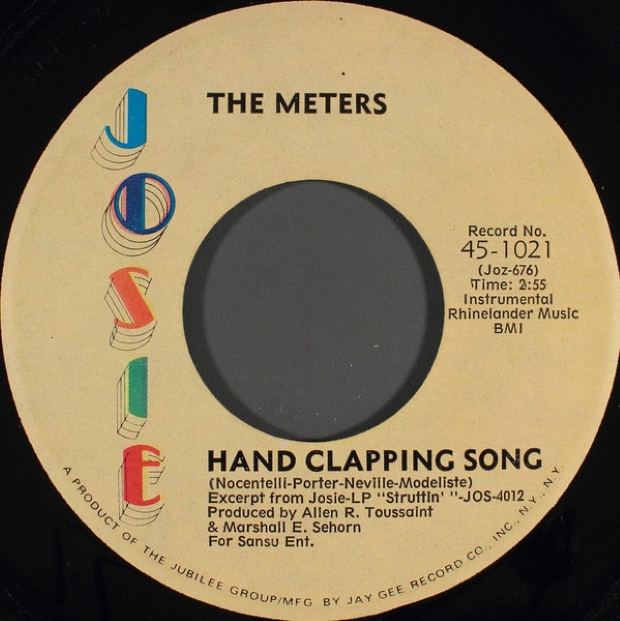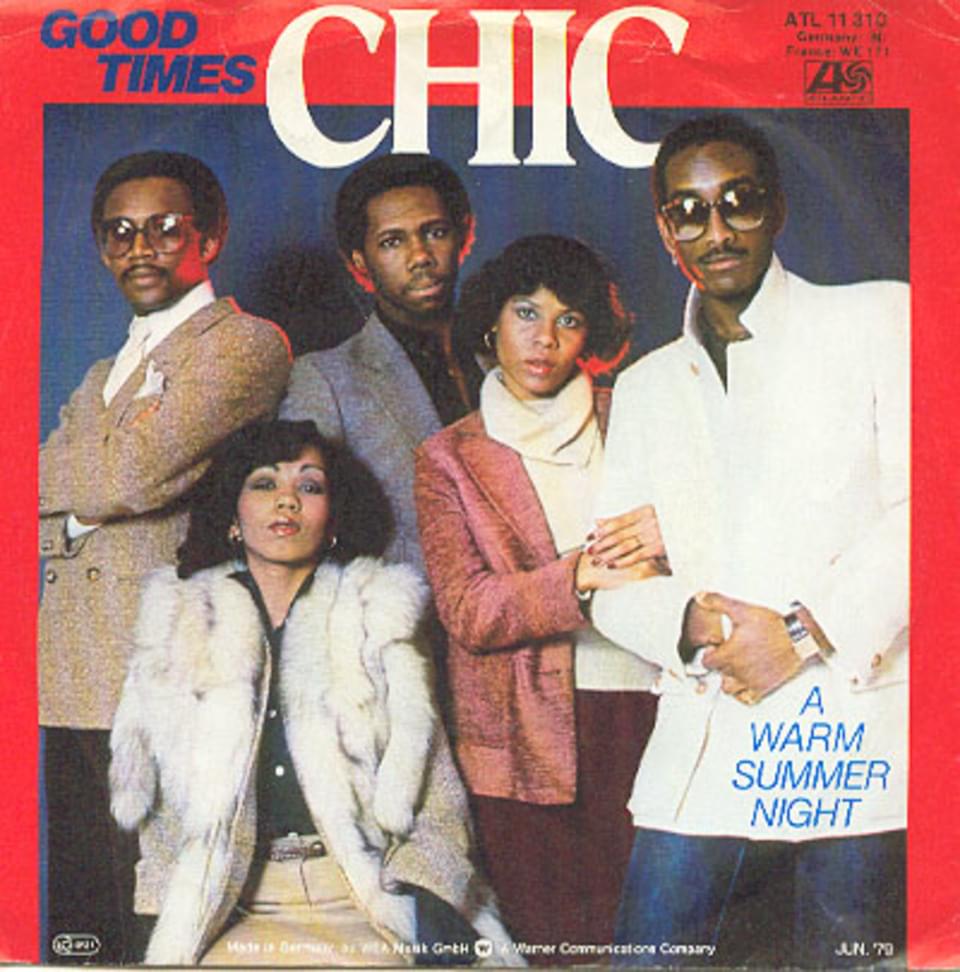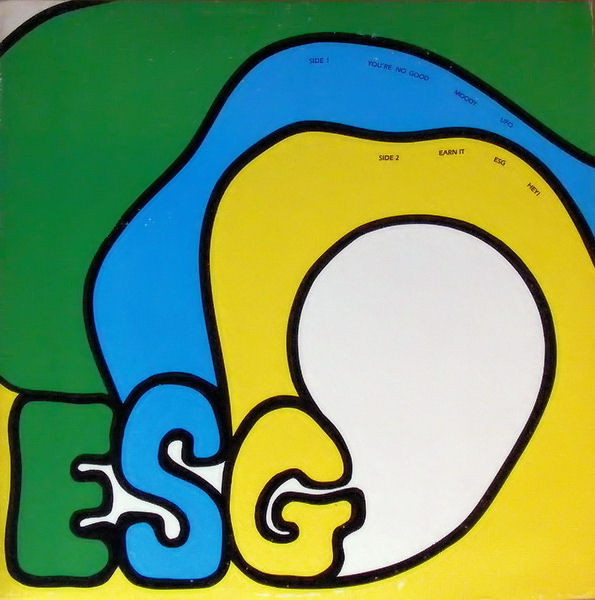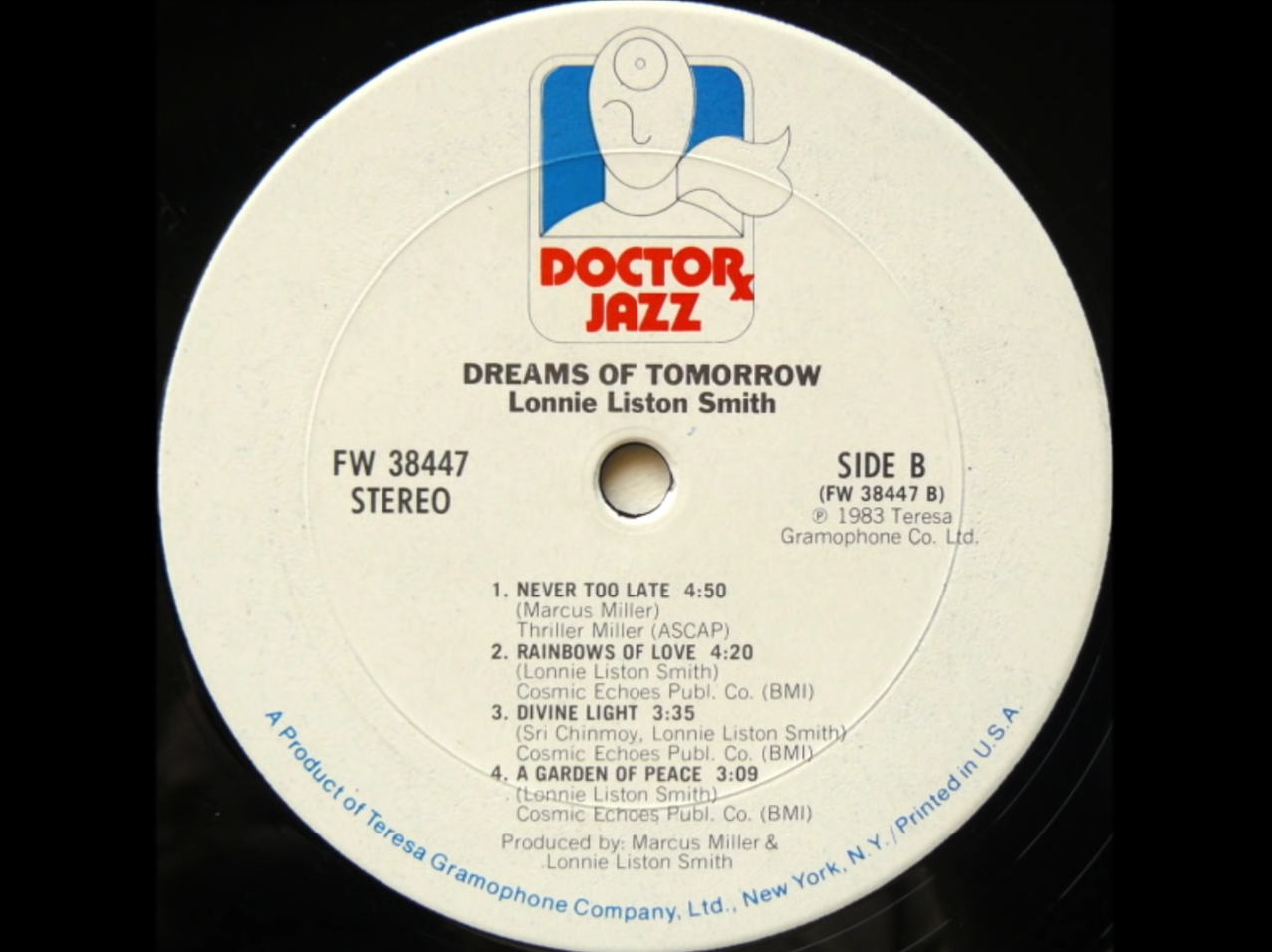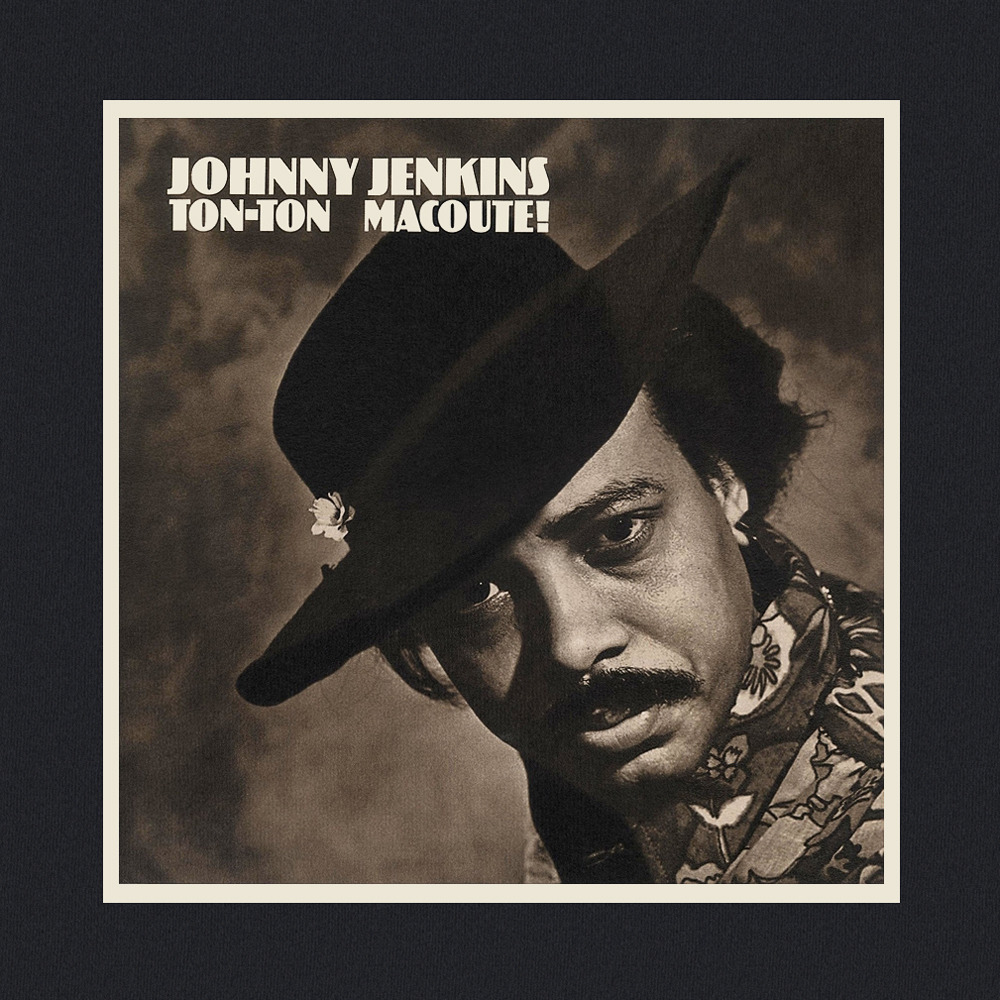Sometimes the most fascinating breaks come from songs we probably wouldn't even know about at all unless someone sampled them. It's a testament to how hip-hop and other sample-based genres aren't necessarily about recognition but innovation and discovery -- and a hopeful sign that as long as there's the possibility of some strange undiscovered gem somewhere out in decades' worth of half-told musical history, there's always Something More out there waiting to be heard and reworked and transformed.
Manzel's "Midnight Theme" -- which turns 40 this year -- is a perfect example of that phenomenon. The second of two singles the Cincinnati-area band put out when the trio (keyboardist Manzel Bush, drummer Steve Garner, and guitarist John Van Dyke) were already dissolved, this 1979 7" just so happened to open with four bars of unaccompanied Garner drumming that made it perfect bait for hip-hop producers starting in the mid-'80s dawn of the sample era.
How it got there's still something of a mystery, but it's led to the kind of unexpectedly resurgent career and lingering notoriety that's kept a band going when they'd otherwise have been a footnote at best. Manzel is still putting out singles, but since their original drummer Steve Garner died, they've been recording with none other than hip-hop underdog/sample scholar/funky drummer J-Zone instead.
A hip-hop artist helping revive a band by means other than sampling them? Funny how that worked. But it makes sense -- so let's take a look at Manzel's path from obscurity to renown.
The Original: Manzel, "Midnght Theme" (B-side to "Sugar Dreams" 7", Fraternity Records, 1979)
https://youtube.com/watch?v=y6JAHk_R3wQ
As a songwriter and musician, Shad O'Shea had the kind of recording career made for irony-poisoned wiseasses to snicker at: a goofy cash-in on the '70s C.B./trucker country craze, not one but two novelty songs about fast-food hamburgers, and an absolutely clownshit entry in the late '60s/early '70s barrage of "hippies are destroying our nation" right-wing glurge songs called "Goodbye Sam."
But as the president of Fraternity Records -- the once-hitmaking Cincinnati label he bought in 1975 -- O'Shea also had an unexpected hand in hip-hop history when he agreed to let a keyboard player named Manzel Bush cut a couple singles with his band in the label's recently finished state-of-the-art studio. Neither one did the chart business that O'Shea had hoped for, something that his liner notes to the 2004 Kenny Dope/Undercover Brother-curated Midnight Theme compilation blames on radio's general disinterest in instrumentals.
But sometimes an underground network of DJs and beatmakers could do what radio play and traditional sales couldn't. That became obvious with "Midnight Theme," just not right away. As a synth-soaked mid-tempo soundtrack for drinking Crown Royal in a Jacuzzi, it had a particularly idiosyncratic feel to its analog-vs.-piano keyboard interplay that made it feel like a couple different jam sessions superimposed over each other. And at just a few ticks longer than two minutes, it had B-side written all over it, compared to its somewhat livelier disco-friendly A-side "Sugar Dreams." But a few years after Lieutenant Manzel Bush headed off to a US Army base in West Germany and the rest of the group's core went its separate ways, that unlikely track and its first few bars of funky drumming were bound to show up somewhere.
The First Sample: Defcon II, "Have You Seen Her?" (12", Desire Music, 1986)
Wait: who? I understand if it took a while for "Midnight Theme" to reach the classic hip-hop canon; it only came out on 7", making it super-unlikely that it ever became a DJ favorite, and it was on a small label 10 years past its hitmaker days. (Not only that, but most of Manzel's late-'70s labelmates on Fraternity were country acts. Not great ones, either.) But finding out that its first acknowledged, recognizable use on wax is by a Los Angeles one-off group for a single which interpolated the Chi-Lites song of the same name four years before MC Hammer did seems... unlikely. And that it's produced by someone with exactly one production credit and a mistaken conflation with a Greek death metal band just confuses the hell out of me.
At least some part of the mystery is solvable: One of the track's co-writers, Def Jef, was a West Coast rapper who had a pretty good two-album solo career in the late '80s/early '90s before switching to full-time production. (If you've ever wondered if anyone's done beats for Shaq, 2Pac, and Raven Symone, there's your answer.) The other, Bilal Bashir, was a member of Ice-T's Rhyme Syndicate along with a whole ton of other dudes and co-produced Divine Styler's Afrocentric classic '89 debut Word Power. But I'm still stuck wondering whose idea it was to not only unearth "Midnight Theme" for this track, but to play it out past its opening drum break and into the piano/synth melodies for a few bars, then drop it entirely to let the drum machine hold sway until the sample shows up again near the end. What on Earth, seriously.
The Early Sample: De La Soul, "Plug Tunin'" (12", Tommy Boy, 1988)
https://youtube.com/watch?v=87BFgfvLZzE
Now this makes more sense: Even before they met up with fellow Long Islander Prince Paul, who was already something of a minor celebrity in the region thanks to his role DJing for Stetsasonic, the members of De La Soul were into finding weird and obscure breaks. And while "Midnight Theme" was starting to catch on a bit in '87, having been used as a melodic break in Steady B's Philly-rap deep cut "The Hill Top" and the UK-only Democratic 3 remix of Eric B. & Rakim's "Move The Crowd," this was one of the first if not the first time anyone figured to loop the drum break on its own.
But before it rode off the "Midnight Theme" sample, "Plug Tunin'" started out as a rhyme routine performed over another plucked-from-obscurity break -- namely "Impeach The President." Whether the Honey Drippers' drums had been a little too obvious by the time De La cut their demo, or whether it just didn't fit as well with the famous loop Posdnous copped from the Invitations' "Written On The Wall," Maseo decided it needed a different drum track. And that's where Prince Paul came in, dubbing over some slightly slowed-down drums from "Midnight Theme" to accentuate and add some additional oomph to the skeletal beat Maseo composed. So while one of the most famously idiosyncratic moments in De La's early production came from the crew themselves instead of Prince Paul, it was Paul who added the fundamental backbone of a break that would become omnipresent over the next few years.
The Breakthrough Sample: Cypress Hill, "How I Could Just Kill A Man" (from Cypress Hill, Ruffhouse, 1991)
DJ Muggs was and remains That Dude, and anyone who ever took him for granted just has to look at what he threw into Cypress Hill's '91 breakthrough single to realize how fucking out-there his ear for juxtaposition could be.
The "Midnight Theme" drums are crucial, of course -- sped up just enough to go from lope to bounce -- but then, bam, he punches in that twangy blues-funk riff and bassline from Lowell Fulson's "Tramp" and that is the kind of pure filth that sampling makes miracles out of. Sicker yet is that he turns the song into a sort of West Coast rock 'n' roll travelogue, from a pitched-up Jimi Hendrix guitar wail to the Music Machine's headfirst-falling organ riff to the one-for-the-skatepunks Suicidal Tendencies punchline during the outro. I can't say for sure whether the RZA and Madlib would've turned out the same way if this track never dropped to blow minds from LA to NYC, but it sure sounds like it made the hip-hop world a bit more ready for them.
The Weirdo Sample: DANGERDOOM, "A.T.H.F." (from The Mouse and the Mask, Epitaph, 2005)
I don't want to be some kind of fun-hater, but I've wondered sometimes if some of Danger Mouse's best beats and an in-his-prime MF Doom weren't at least a little squandered on doing tracks about Adult Swim cartoons. Given how well the Cartoon Network TV block has advocated for bubbling-under and alt-level musicians, I'm gonna give the whole Mouse And The Mask thing the benefit of the doubt; I definitely remember liking it when it first came out, though I was more defiantly protective of anything that cynics could call "corny" back then.
And now that I'm revisiting this cut, I'm actually finding it hard not to laugh at the whole intro where Meatwad and Jersey dirtbag Carl from Aqua Teen Hunger Force get into a back-and-forth over the merits of hip-hop versus "somethin' badass... like REO Speedwagon." And I'm still impressed with how Doom can string together perfect internal rhyme phrases and specific ATHF references without sounding convoluted. Oh, right, "Midnight Theme": DM makes it sound sturdy, but I keep getting distracted by the scuzzy bounce of that French library joint he samples for the main bit.
The Recent Sample: The Alchemist, "Departure" (from Israeli Salad, ALC, 2015)
Alc gets super-obscure with it on a regular basis, but he also makes it all cohere in the process; I can't think of too many other producers aside from the aforementioned Madlib who can pick a single thematic lane for one album and just knock that shit all the way out of the park.
Like 2012's Russian Roulette before it and 2018's French Blend afterwards, 2015's Israeli Salad is what happens when a cratedigger focuses on one country's deep cuts and comes back with a transcontinental permutation of classic breaks. This closing cut uses a slowed-down "Midnight Theme" break to hold down a melody that sounds ancient and '70s at the same time, wordless keening melodies and ghostly piano echoing through the miles and the years.
